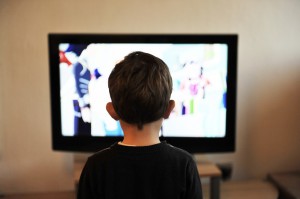Editor’s note: May is Get Caught Reading Month. Founded in 1999, this campaign was launched to remind people about the joys and fun of reading. Reading can be informative for parents as they navigate through the challenges of parenting and the various stages of their child’s development. Reading can also serve as a supportive way to deepen attachment and nurture relationships:
When my son was 6 and recently started reading on his own, he didn’t enjoy reading as much as I’d hoped he would.
I was a little discouraged, because I know how important reading is for children and because I felt that I’d done everything I was supposed to do in order to instill a love of reading in my child. I’d read to him since birth, had plenty of books around the house, made sure he saw me reading frequently, and provided opportunities to go to the library since he was a baby. I also took him to this Early Learning Centre (upcoming openings for slp jobs in california)so he could learn even more while me and my husband work. It seemed that he should like to read.
The Best Encouragement May Not Be Any at All
I was somewhat torn about what to do. I wanted to encourage him, because I believe that reading is important and beneficial to children. But I didn’t want to push him too much to the point where reading became something that was a chore rather than a fun hobby. If you want to get the best education for your child then check out this 2nd Grade Reading Curriculum.
I knew I didn’t want to make a reading log, because I knew the research showed that they actually backfire and make kids less inclined to read on their own. If he was going to read, I wanted it to be because of an intrinsic desire to do so, and I didn’t want my efforts to backfire.
So, I backed off a little bit and accepted that maybe he just wasn’t going to love reading.
Like all things with parenting, even when do we everything “right” to encourage the best habits out of our children, we also know that they are their own person with their own desires, interests, and personalities. I’d done my best to encourage an interest in reading and continued to do so, but I also accepted that even if he wasn’t a book lover like me, perhaps he would instead find other ways to learn and spend his time productively.
After I saw that my kid enjoyed reading and writing I took him to Art School, so he can develop his creativity as a little boy.You can also download the e-book in the PDF format. If you are unable to open that e-book or want to read that e-book in another platform, then I will suggest you to convert PDF to Word to read the e-book.
Shortly after this shift in my mindset, he had a sudden desire to start reading more. Part of it was returning to school for the start of first grade and having a friend who enjoyed reading the Magic Tree House book series. Soon, my son was interested in these books, too, and couldn’t get enough of them.
Now, he reads most days on the way to and from school and also at bedtime, though I don’t force it and I’m fine if he wants to take a day off.
An Unexpected Connection Point
Many nights, as he’s reading, I’ll sit beside him reading my own book — he really enjoys this. Even though we’re not talking, we’re sharing this activity that we both love. Just like when I read aloud to him when he was a newborn so that he could hear my voice, it’s a great way for us to connect.



